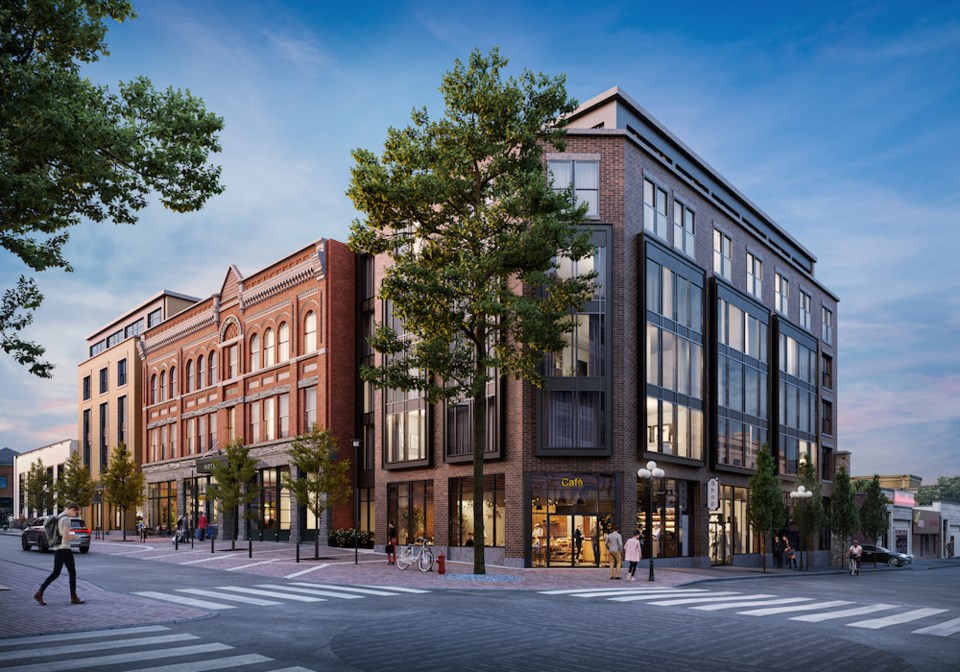B.C.’s passage of new rules governing short-term rentals set the “gold standard” for other jurisdictions, and will encourage much-needed development in centres across the province.
The legislation, passed at the end of October, will require the registration of properties leased for terms of 90 days or less and the payment of an annual fee beginning next year. It also increased penalties, effective immediately, and gives regional districts (in addition to municipalities) the power to regulate operators.
Primary residences are exempt, as are the province’s 14 resort municipalities, mountain resorts and designated resort regions, areas governed by the Islands Trust and agri-tourism operations.
“This was a huge win that we’re incredibly proud of,” Adrienne Foster, vice-president, policy & public affairs, with the Hotel Association of Canada told the Western Canadian Lodging Conference in Vancouver on Nov. 2. “They are now the gold standard.”
Her comments echoed those of Ingrid Jarrett, president and CEO of the BC Hotel Assocation, which funded a study by the Urban Politics and Governance research group at McGill University into BC’s short-term rental market.
“This was a huge win,” Jarrett said. “We spent a lot [on] research and then education, so Bill 35 is super-good news for all of us.”
Jarrett said the hotel industry has long wanted a level playing field for hotels and short-term rentals, arguing that those who engage in the so-called sharing economy as a business venture should be considered businesses.
“If we have a business license, they should have a business licence. If we pay commercial tax, they should pay commercial tax,” she said.
McGill’s study found that in June 2023 there were 28,510 active short-term rental listings in the province on a daily basis. Of these, 48.4 per cent were operated by owners with more than one listing, and these accounted for 51.7 per cent of total host revenue that month. Put another way, the top 10 per cent of hosts earned 48.8 per cent of all revenue, indicating the highly concentrated nature of revenue flows.
Jarrett described the estimated 16,000 units operated on a commercial basis as “ghost hotels” in the form of multiple units within a single building and even whole apartment buildings given over to short-term rentals.
While a study by the Conference Board of Canada in partnership with Airbnb, the most recognized of short-term rental platforms, indicates a limited impact on the long-term rental market from short-term rentals, the McGill study claimed otherwise.
It said that short-term rental operations were responsible for removing 16,810 units from the long-term housing inventory, and find that an increase of one dedicated STR per 100 rental units in any given neighbourhood boosts average rents in surrounding units by approximately $49 a month.
This is a live issue for hoteliers, who say they’re increasingly supplementing the long-term rental market. While older hotels across the province have been a source of housing for low-income residents and even international students, Hotel Association of Canada research indicates that more than more than half of is members have diverted rooms to accommodate staff while 41% have provided housing to refugees of environmental or international crises.
“They are literally taking that housing where we don't have anywhere to house our employees,” Jarrett said of short-term rentals. “Increasingly I'm hearing hotels actually having employees living in hotels, which is not what hotels were built for.”
Jarrett and Foster both look forward to the new rules returning housing to the rental market, and other jurisdictions following suit.
Foster said approximately 50 jurisdictions across Canada now regulate short-term rentals, and industry is urging the federal government to empower the Canada Revenue Agency to tax short-term rental hosts as businesses.
The move would be similar to a crackdown the CRA initiated prior to the pandemic against property owners who bought and sold residences as “an adventure or concern in the nature of trade.”
However, the importance of hotels in supplementing the long-term housing market given the country’s ongoing housing crisis is also driving interest in developers being able to tap the GST/HST waiver for rental housing on a portion of hotel construction.
During a market update at the Western Canadian Lodging Conference, HVS Canada senior managing partner Carrie Russell said B.C.’s new rules were poised to stimulate hotel construction in popular destinations such as Victoria, where occupancies averaged 71 per cent this year through September, cresting to 87 per cent in August – firmly in the range of what’s functionally deemed full capacity.
Chard Development Ltd. has plans for a 135-room hotel on Broad Street while Reliance Properties Ltd. is looking to build upwards of 100 rooms as part of a redevelopment project on Blanshard, Russell said. A Hampton Inn by Hilton is also under discussion for downtown, and more could follow.
“There’s 1,300 rooms right now in the Airbnb space in Victoria. A good chunk of them – 30 to 40 per cent – are hotel-sized spaces (one bedroom or smaller),” she said. “You’re already operating at occupancies in the 70s, and you’re going to take out a chunk of supply next year, so I think these new properties that are in the pipeline are well-positioned and it may even stimulate some more activity in terms of development.”




